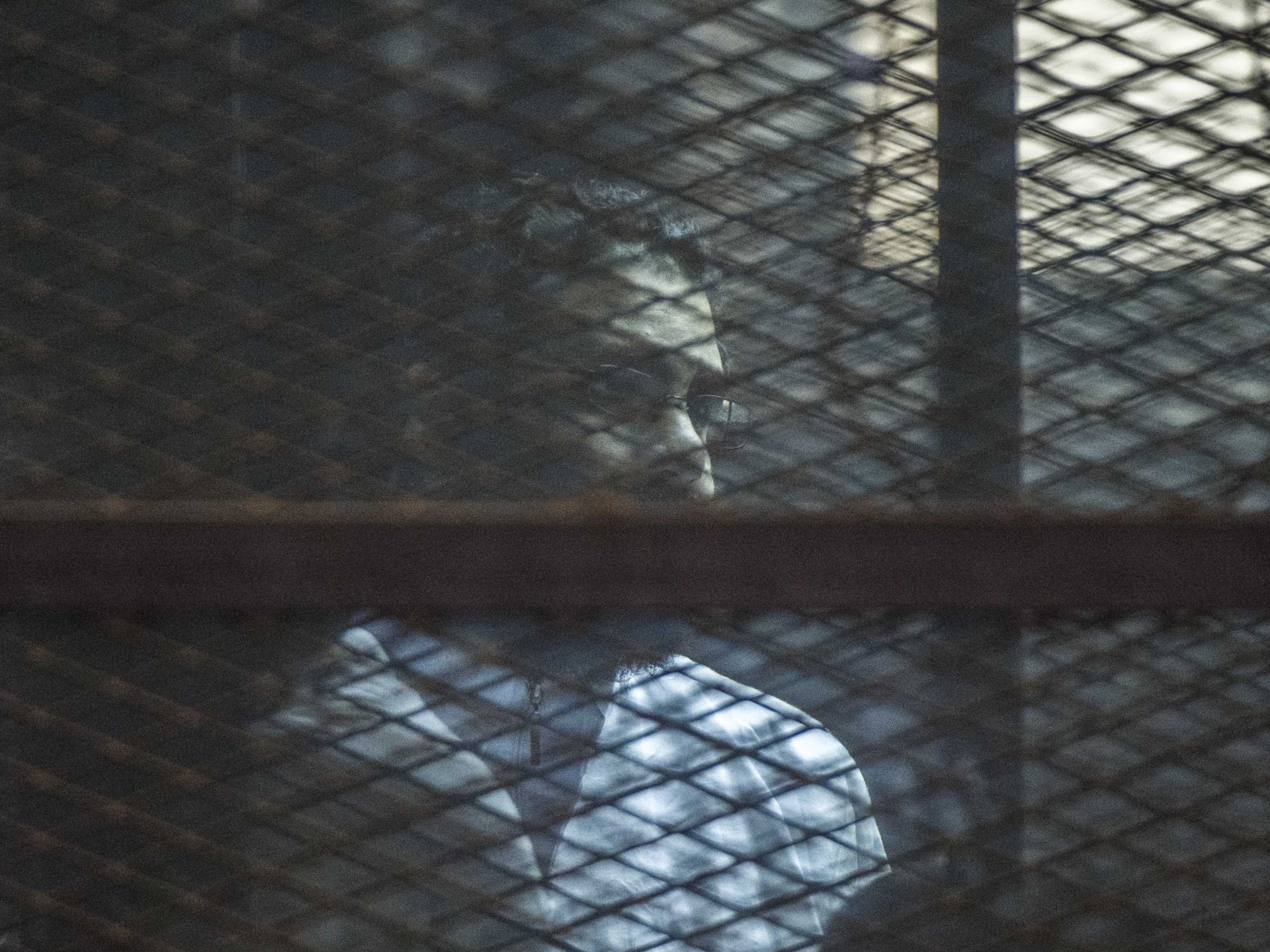The health of imprisoned Egyptian activist Alaa Abd el-Fattah “deteriorated severely”, his sister Mona Seif has said, as the family was allowed to visit him for the first time in nearly a month.
“News from the visit are unsettling,” Seif said on Thursday on Twitter. Abd el-Fattah deteriorated severely in the past two weeks, she said, adding that the family would share more information later in the day.
News from the visit are unsettling, @alaa deteriorated severely in the past 2 weeks, but atleast they got to see him, and he needed to see the family so much
The family will share the full details later today, please bear with us #SaveAlaa #FreeAlaa— Mona Seif (@Monasosh) November 17, 2022
Abd el-Fattah, a blogger and software developer, is one of the most well-known voices to have come out of the uprising of January 25, 2011, when millions of Egyptians protested against then-President Hosni Mubarak’s rule. He has been imprisoned for most of the past decade, and in April, he began a partial hunger strike to protest against his arrest and sentencing.
Earlier in November, the human right activist decided to escalate his hunger strike, halting all calories and water to draw attention to his case and those of other political prisoners as world leaders gathered in Egypt’s Red Sea resort of Sharm el-Sheikh for the COP27 – the United Nations summit on climate change.
Concerns for his health intensified as the family was barred from seeing him. Last Thursday, prison authorities began an unspecified medical intervention on Abd el-Fattah – prompting thoughts that he was being force-fed.
Earlier this week, Abd el-Fattah informed his family in handwritten notes that he first started drinking water again and then also ended the hunger strike.
Abdel-Fattah’s mother, Laila Soueif, received two short letters in her son’s handwriting, on Monday and Tuesday, through prison authorities. The first letter, confirming Abd el-Fattah had started drinking water again, was dated Saturday, while the second letter, confirming he had ended his hunger strike was dated Monday.
“My heart goes out to Laila. I hope the visit is going well, that she was able to hold her son in her arms,” posted Agnes Callamard, Amnesty International’s secretary general, on Twitter.
“No mother should have to go through this ordeal, no son or daughter should be arbitrarily imprisoned for demanding peacefully an end to repression,” she added.
My heart goes out to Laila. I hope the visit is going well, that she was able to hold her son in her arms. No mother should have to go through this ordeal, no son or daughter should be arbitrarily imprisoned for demanding peacefully an end to repression. #FreeAlaa https://t.co/MmP1MRfsZX
— Agnes Callamard (@AgnesCallamard) November 17, 2022
Abd el-Fattah, who turns 41 on Friday, has spent most of the past decade in prison because of his criticism of Egypt’s rulers. In December last year, he was sentenced to five years for sharing a Facebook post about a prisoner who died in custody in 2019.
He was first sentenced in 2014 after being convicted of taking part in an unauthorised protest and allegedly assaulting a police officer. He was released in 2019 after serving a five-year term but was rearrested later that year in a crackdown that followed rare anti-government protests.
He also faces separate charges of misusing social media and joining a “terrorist” group – a reference to the banned Muslim Brotherhood, which authorities declared a “terrorist organisation” in 2013.
His hunger strike drew attention to Egypt’s heavy suppression of speech and political activity, during the Arab nation hosting of the UN climate summit. Since 2013, President Abdel Fattah el-Sisi’s government has cracked down on dissidents and critics, jailing thousands, virtually banning protests and monitoring social media.
At the climate gathering, British Prime Minister Rishi Sunak, French President Emmanuel Macron and German Chancellor Olaf Scholz all raised the activist’s case in their talks with el-Sisi. Abd el-Fattah gained British citizenship earlier this year through his mother who was born in London.
